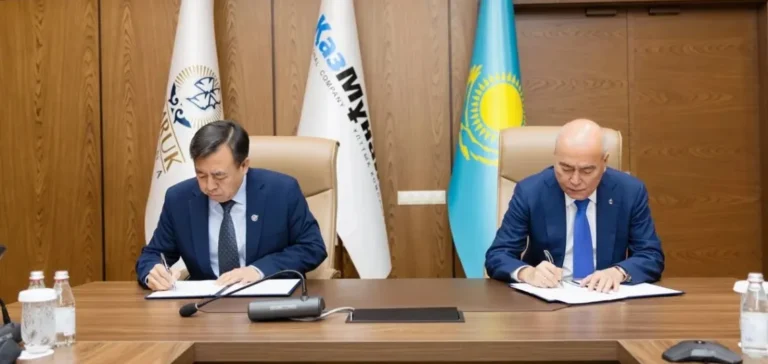The Chinese group China National Offshore Oil Corporation (CNOOC), through its wholly owned subsidiary CNOOC Hong Kong Holding Limited, signed on 24 June an exploration and production contract for hydrocarbons with the Kazakh Ministry of Energy and the national oil company Joint Stock Company National Company KazMunayGas (KMG). The agreement covers the Zhylyoi subsoil area, located partly in the Atyrau region and partly in the Kazakh sector of the Caspian Sea, with a surface of 958 square kilometres. The first exploration phase is set at nine years, after which a development programme may be triggered if discoveries prove commercially viable. CNOOC and KMG will each hold fifty % of the interests and share exploration costs as well as future profits.
A joint venture to steer operations
The partners have agreed to create a joint operating company endowed with the governance and technical means required to conduct seismic surveys, exploration drilling and subsurface studies. “Both parties will establish a joint operating company and act as operator,” CNOOC Limited said in a statement issued on 24 June. Initial work is expected to focus on geological structures already identified by three-dimensional seismic exploration carried out in recent years in the North Caspian basin. The contract also sets local-content obligations, favouring Kazakh suppliers and contractors when they possess the necessary capabilities.
The project marks a new step in CNOOC’s strategy to diversify its reserves outside China, after strengthening its presence in Guyana, Brazil and the Middle East over the past three years. For KMG, the arrival of a partner with strong offshore expertise is a lever to accelerate exploration of the Caspian shelf, where commercial discoveries have remained limited since the beginning of the decade. According to data from the Kazakh Ministry of Energy, national oil and gas production reached twenty-two mn barrels of oil equivalent in 2024, still nine % below the government target set before the pandemic.
Objectives and timetable for the exploration phase
Fieldwork should start in the first half of 2026 after final programme approval by the Kazakh authorities and fulfilment of local environmental requirements. The plan calls for drilling at least three exploration wells during the first three years, followed by two appraisal wells if results are positive. Cumulative investments for this phase have not been disclosed, but analysts at consultancy Wood Mackenzie estimate that a similar programme in the North Caspian typically requires five hundred mn $ over nine years. The Zhylyoi area, adjacent to the giant Tengiz field, attracts international operators for its carbonate formations deemed promising.
Potential volumes will remain unknown until flow tests are completed, but the joint involvement of CNOOC and KMG shows a willingness to strengthen Sino-Kazakh energy cooperation in a regional context marked by competition for access to Caspian reserves.






















